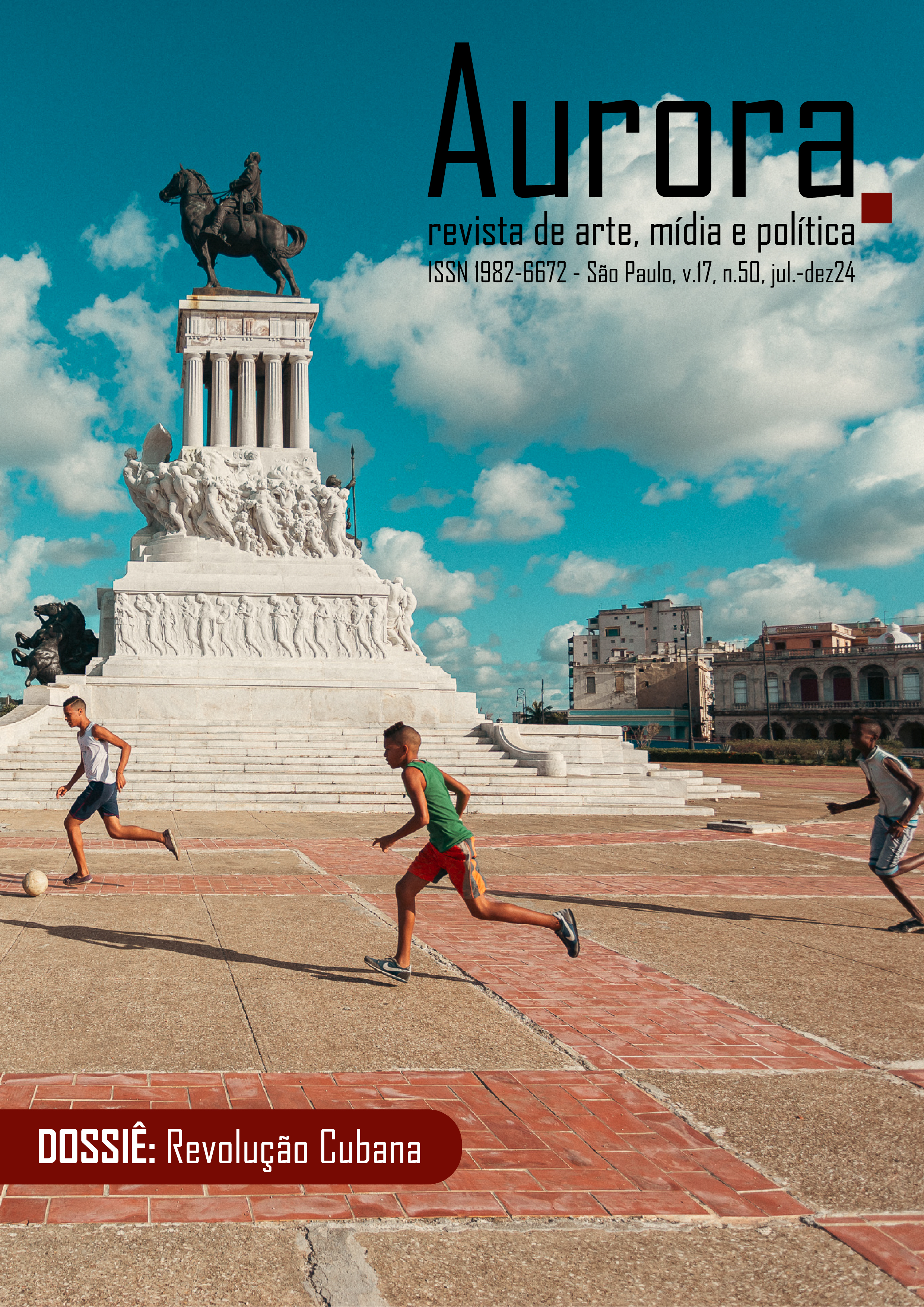Neoliberalism, subjectivity and cultural industry in Brazil:
a proposal of interpretation from the Critical Theory.
DOI:
https://doi.org/10.23925/1982-6672.2024v17i50p135-155Keywords:
Neoliberalism, cultural industry, country music, aesthetic trainingAbstract
The contemporary crises of capital have mobilized efforts to manage the social malaise by turning it against projected enemies who become targets of authoritarian violence. The cultural music industry offers its share of justification, convincing, and naturalization of inhumane relationships that exploit nature and human beings as if there were no alternative. It is in this context that the present work proposes an interpretation of the relationship between the crises of neoliberalism, the management of affections, and the hegemonic advance of a certain genre of the musical cultural industry in Brazil, financed by economic sectors that seek to restructure and strengthen themselves at the expense of whatever. To this end, this work focuses on the foundations of the Critical Theory of Society and tests an interpretation of contemporary reality that articulates the transformations in the mode of production in the face of crises, the management of affections, and subjectivation processes that seek to guarantee the self-preservation of subjects.
References
ATTALI, Jacques. Bruits: essai sur l’économie politique de la musique. França: Press Universitaires de France, 1977.
ADORNO, Theodor Wiesengrund. Sociedad. In. _______. Escritos sociológicos I. Obras completa, vol.8. Trad. Agustín González Ruiz. p. 9-18, Madrid, España: Ediciones Akal, 2004.
ADORNO, Theodor Wiesengrund. Teoria Estética. Trad. Artur Morão. Lisboa, Portugal: Edições 70, 2011.
ADORNO, Theodor Wiesengrund; HORKHEIMER, Max. Dialética do Esclarecimento: fragmentos filosóficos. Trad. Guido Antonio de Almeida. Rio de Janeiro: Zahar, 1985.
ADORNO, Theodor Wiesengrund; SIMPSON, George. Sobre música popular. In. COHN, Gabriel (org). Theodor Adorno – Sociologia. Trad. Flávio R. Kothe. São Paulo: Editora Ática, p. 115-146, 1986.
ALONSO, Gustavo. Cowboys do asfalto: música sertaneja e modernização brasileira. Rio de Janeiro: Civilização Brasileira, 2015.
BENJAMIN, Walter. Magia e técnica, arte e política: ensaios sobre literatura e história da cultura. Obras escolhidas. Vol. 1. Trad. Sergio Paulo Rouanet. São Paulo: Editora Brasiliense, 1994.
CHÃ, Ana Manoela. Agronegócio e indústria cultural: estratégias das empresas para a construção da hegemonia. São Paulo: Expressão Popular, 2018.
FREUD, Sigmund. O mal-estar na civilização. In. _________. Obras Completas volume 18 [1930-1936]. Tradução Paulo César de Souza. São Paulo: Companhia das Letras, p. 13- 122, 2010.
FREUD, Sigmund. Psicologia das massas e análise do Eu. In. _________. Obras Completas volume 15 [1920-1923]. Tradução Paulo César de Souza. São Paulo: Companhia das Letras, p.13-113, 2011.
MENDONÇA, Joêzer. Música e religião na era do pop. Curitiba: Appris, 2014.
OLIVEIRA, Francisco de. Crítica à razão dualista: o ornitorrinco. São Paulo: Boitempo, 2013.
POMPEIA, Caio. Formação política do Agronegócio. São Paulo: Elefante, 2021.
ZAMORA, Jose Antonio; MATE, Reyes; MAISO, Jordi. Las víctimas como precio necesario. Madri,Espanha: Editorial Trotta, 2016.
Downloads
Published
How to Cite
Issue
Section
License
Copyright (c) 2024 Aurora. Journal of Art, Media and Politics.

This work is licensed under a Creative Commons Attribution 4.0 International License.











